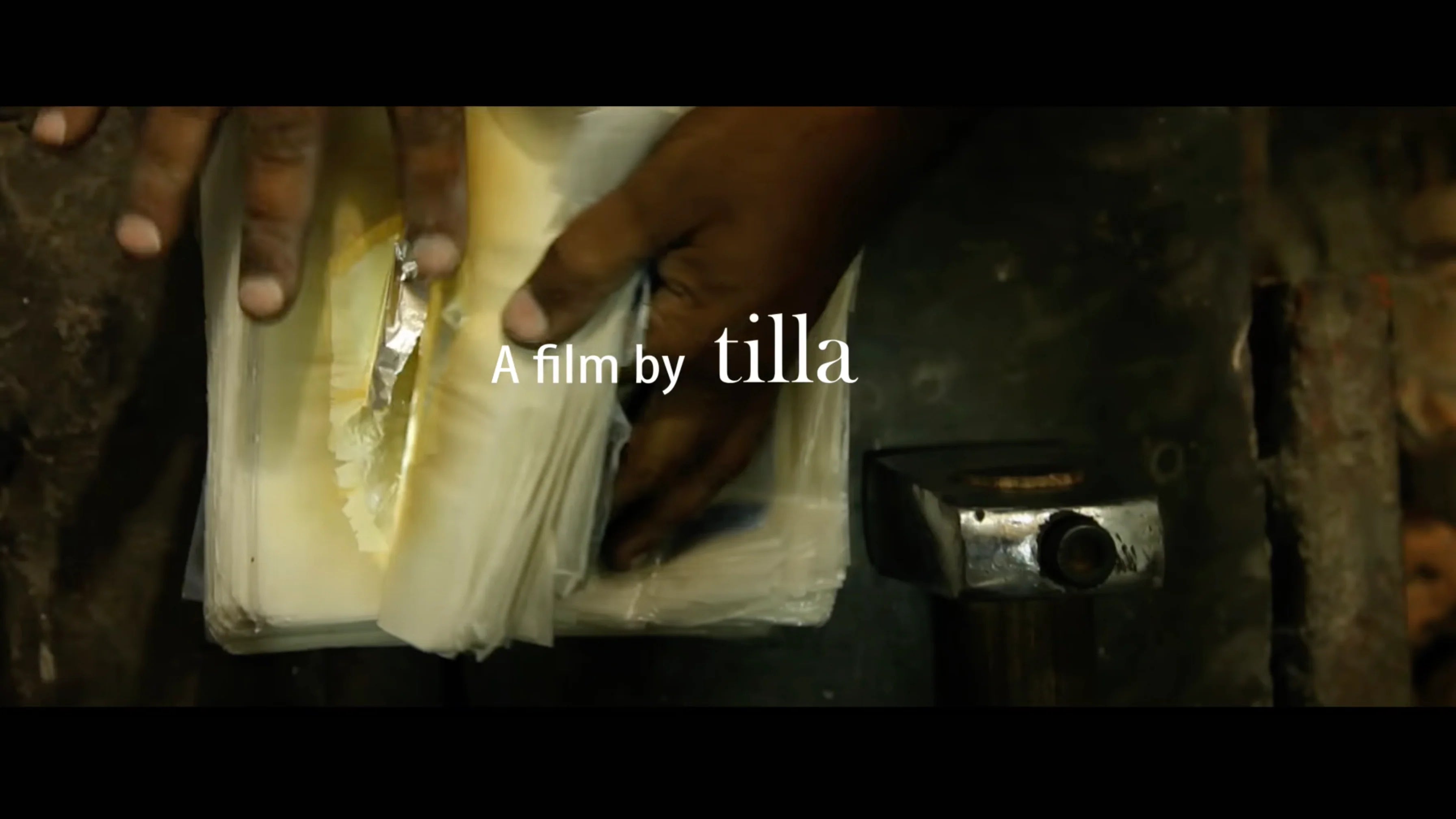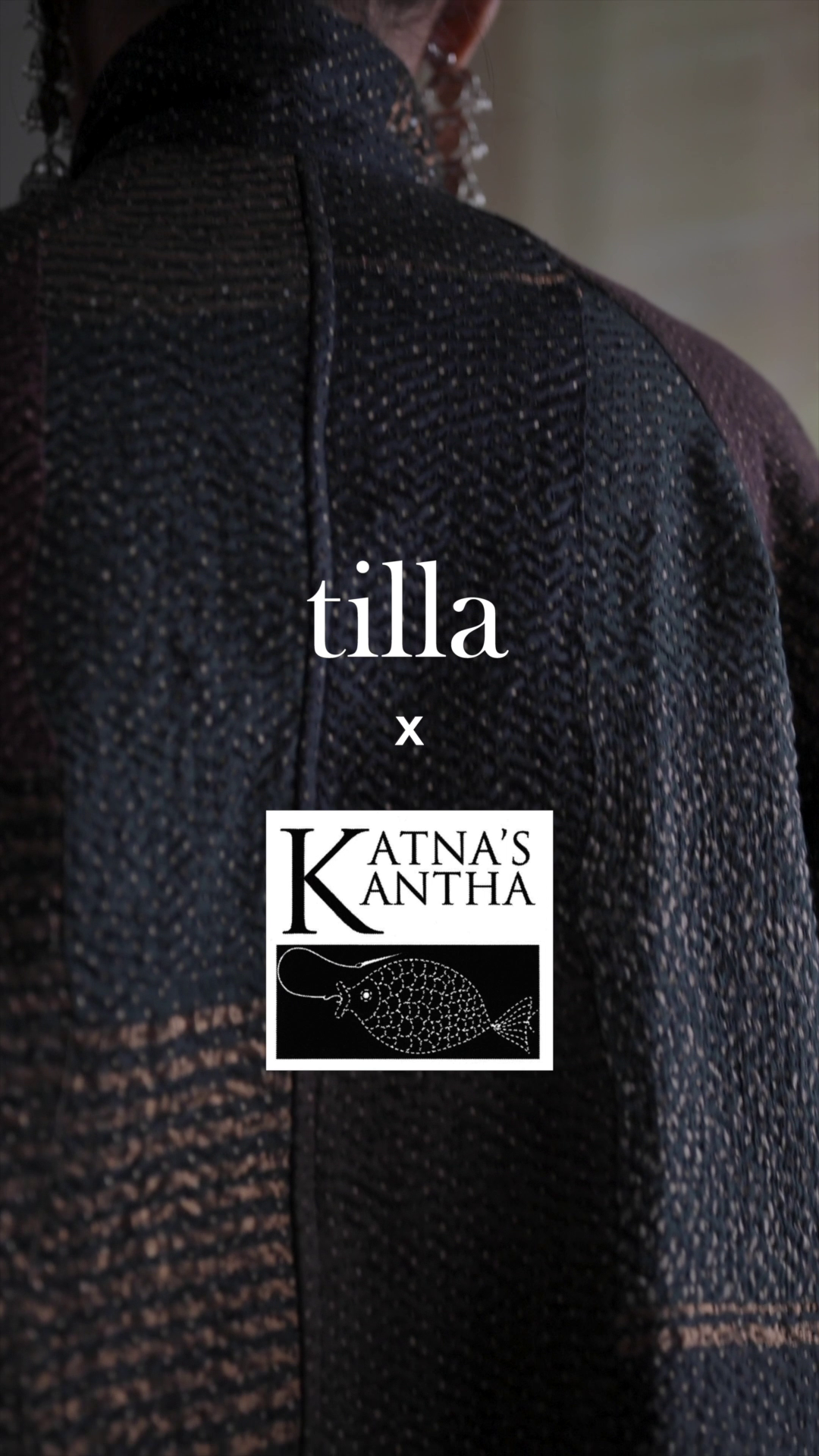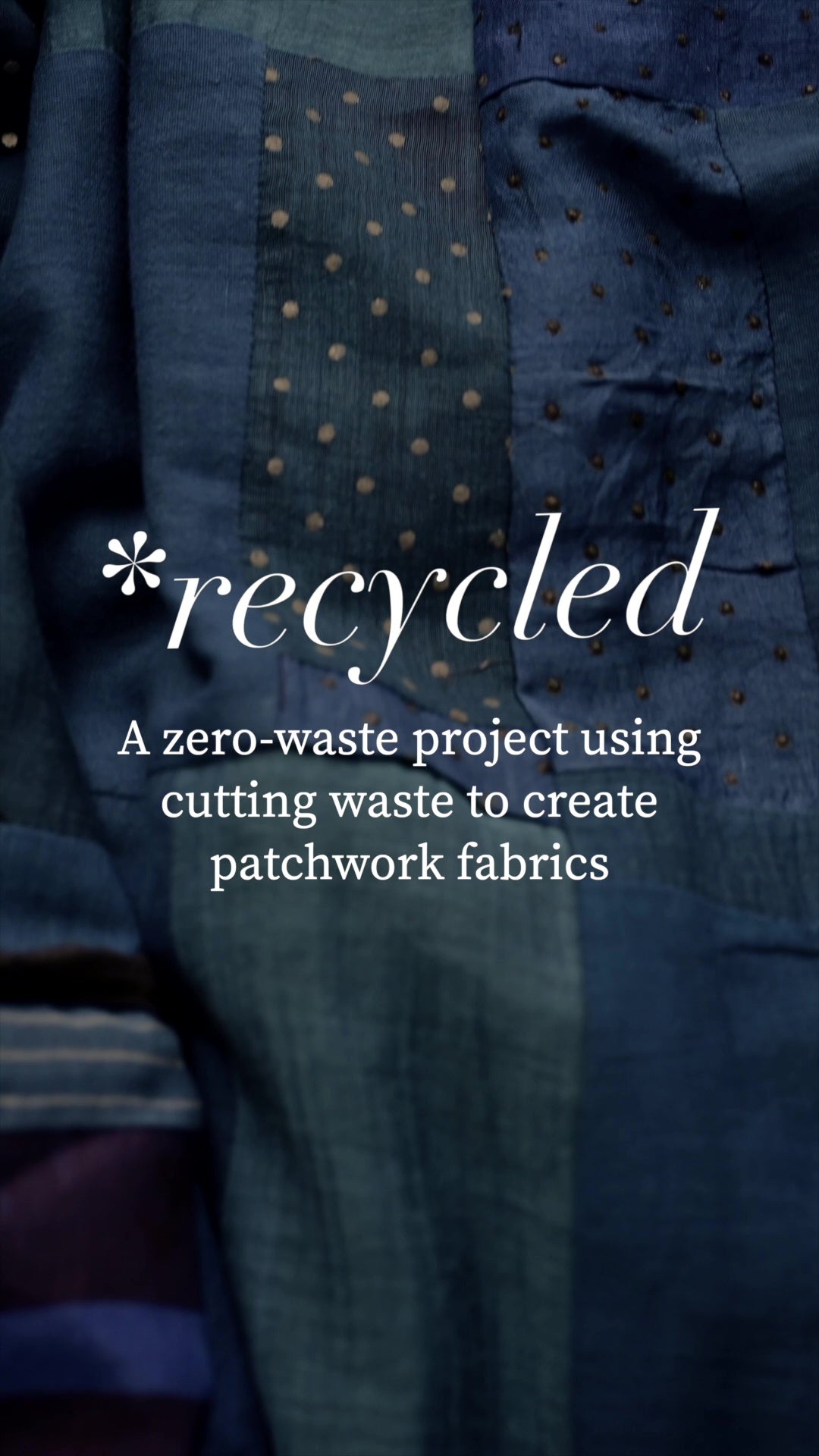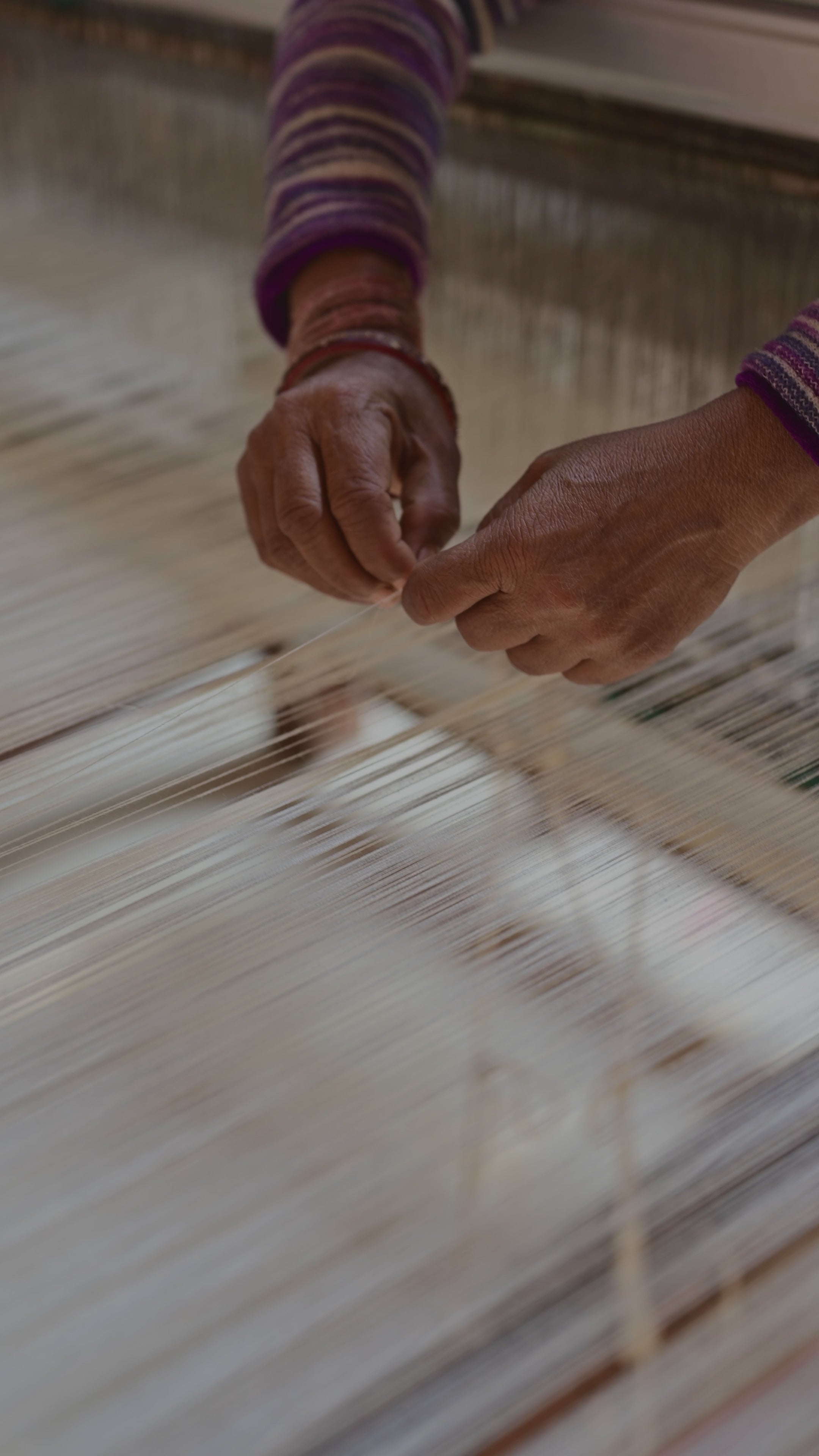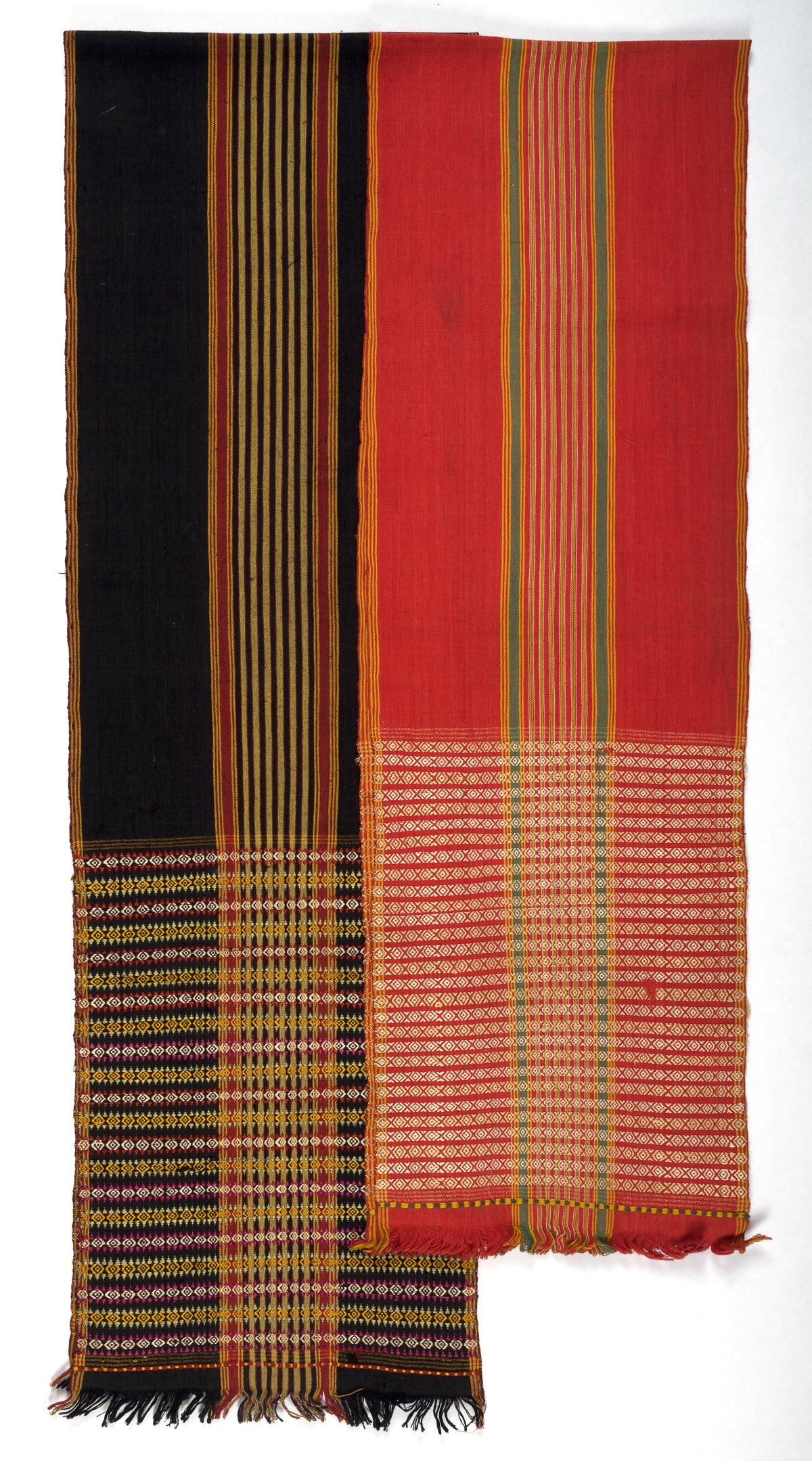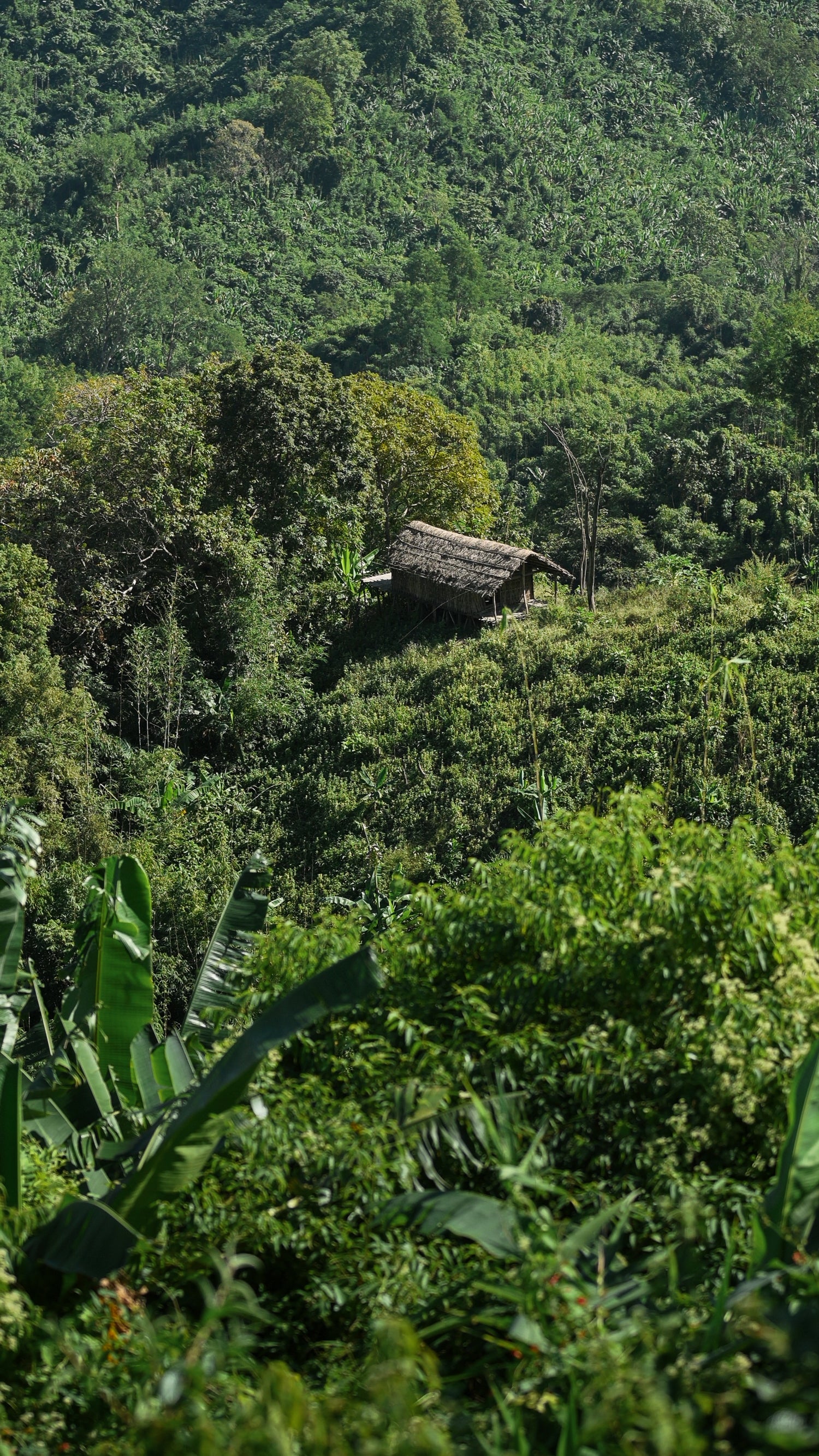The Recycled Project
Recycled is a zero-waste project in collaboration with Soach, an NGO in Gujarat and Katna's Kantha, a women's collective in West Bengal, India. It generates sustained work for a group of women in Pindharada (Gujarat) and Katna (West Bengal) and nearby villages while encouraging them to explore their own artistic expression.
The project uses cutting fallouts from our workshop, which the women sew into patchwork textiles, which are quilted using kantha embroidery and made into clothing and quilts. By incorporating these scrap fabrics into new designs, we ensure no part of the labour that has gone into their making is wasted.
The Tripura Project
A REVIVAL OF THE NARROW TEXTILE WEAVING TRADITION OF TRIPURA
Risha is a narrow textile, no more than 30 cms wide and 160 cms long, woven and worn by women of the 19 or so indigenous tribes of Tripura. It is worn as a breast cloth wrapped around the upper body in conjunction with the Rignai which is a wider cloth worn as a wrapped skirt. Made on a simple back-strap loom fashioned locally out of bamboo, these textiles have existed since antiquity and are an indicator of a self-sufficient way of life characteristic of tribal societies in the north eastern region of India.
The last century has seen a gradual decline of both Risha wearing and weaving, with the breast cloth being replaced by other items of clothing such as the chador, saree blouses etc. used to cover the upper body. The reasons for this are complex and varied as communities have migrated, inter-married and been exposed to external cultural and political influences. At Tilla, we have been collecting and documenting examples of this textile, worn by commoners and royalty alike, some that date as far back as the mid 1800s.
While the Risha has transitioned from being a garment for everyday use to acquiring symbolic status in the context of modern-day identity politics in the north east, the skill of weaving on the backstrap loom is still alive and practiced by many women within the tribal community. The central agenda of this project is the revival of Risha weaving and we hope that the extensive documentation of this tradition and its supporting context might inspire weavers, designers and textile researchers to look more closely at this traditional garment and see scope for further exploration in its unique aesthetic.
The Vintage Project
The Vintage Project pays homage to traditional textiles and folk embroideries from the Indian subcontinent by repurposing old pieces collected for their workmanship and heirloom value.
Every season, we upcycle textiles from our archived vintage collection by combining them with appliqué, beadwork, and metallic embroidery, and working them into one-of-a-kind statement pieces such as kurtas, kaftans, dresses, and jackets.
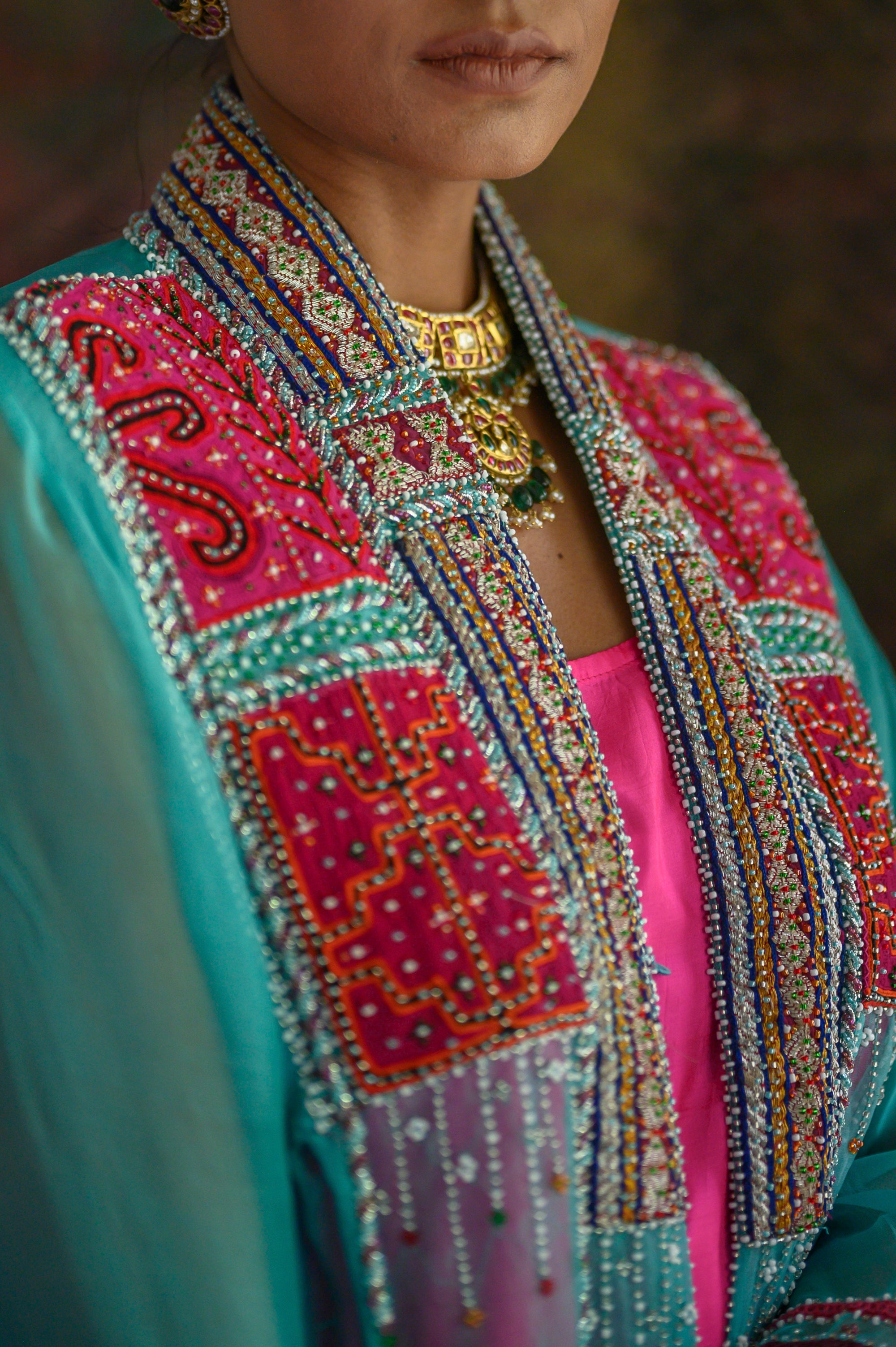
The Making of the Vintage Balochi Jacket
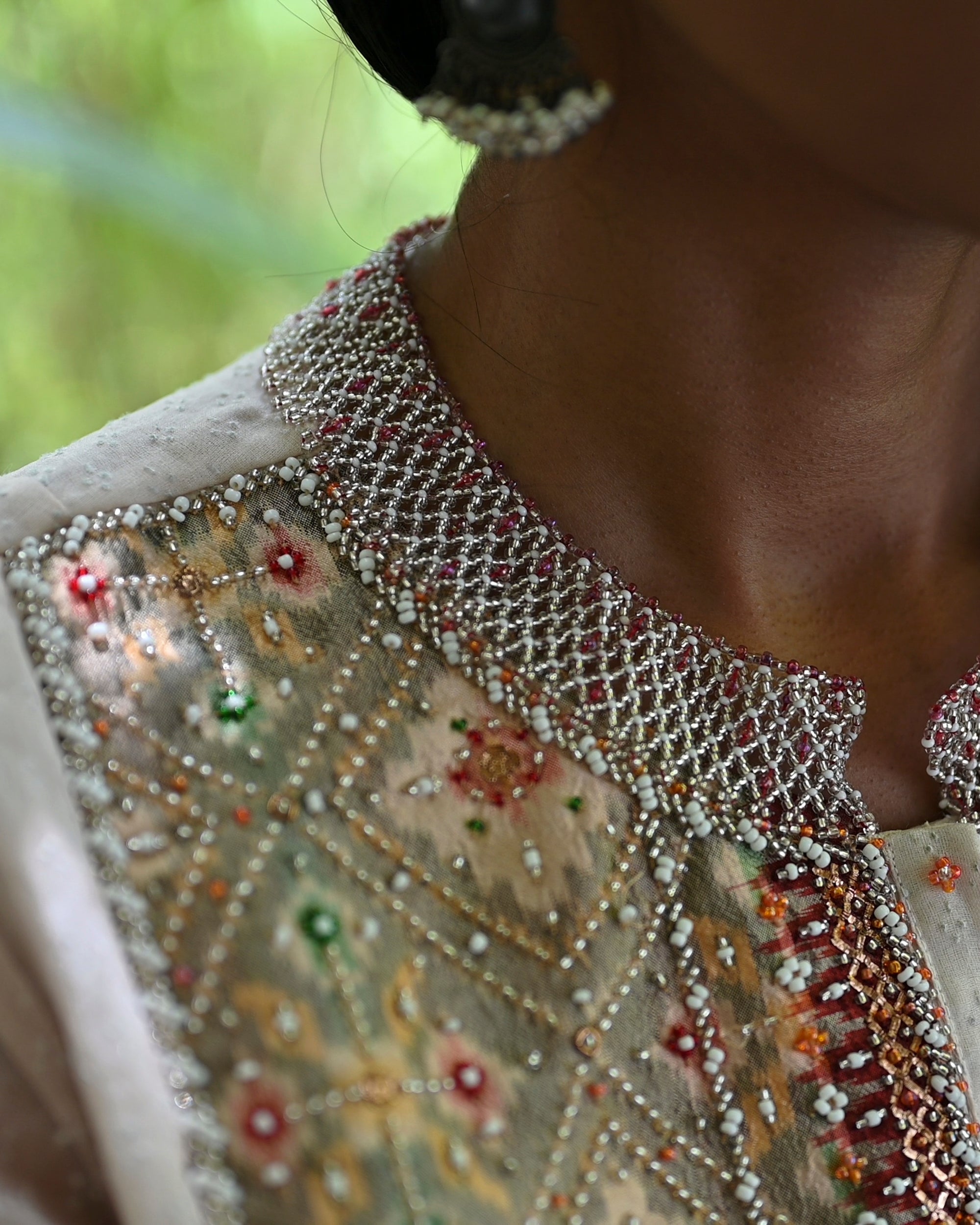
The Making of the Vintage Choker Kurta
Lakshmi | Occasion Wear
Lakshmi, our collection of festive Indian outfits and bespoke bridal wear, is named after the Indian goddess of wealth and beauty. It features rich traditional embroideries such as Zardosi, Ari, and Gota that use gold, silver, and threadwork with other materials such as sequins and beads.
The design language draws strongly from a traditional cultural context, and is informed by an Indian approach and sensibility to luxury. Meticulously crafted by hand, each piece is made to order, allowing for special requests on colour and size.
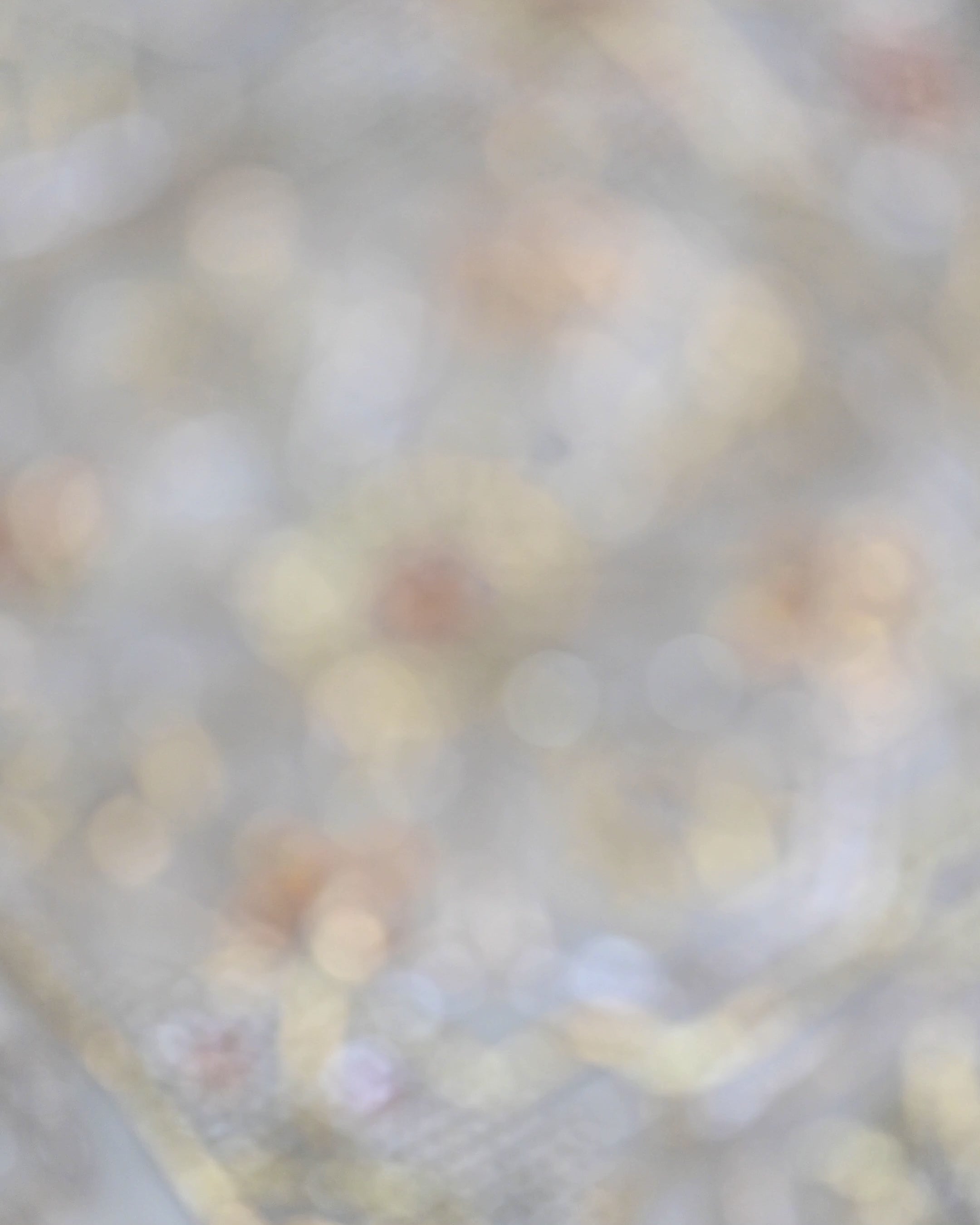
View our film on the Charbagh Lehenga
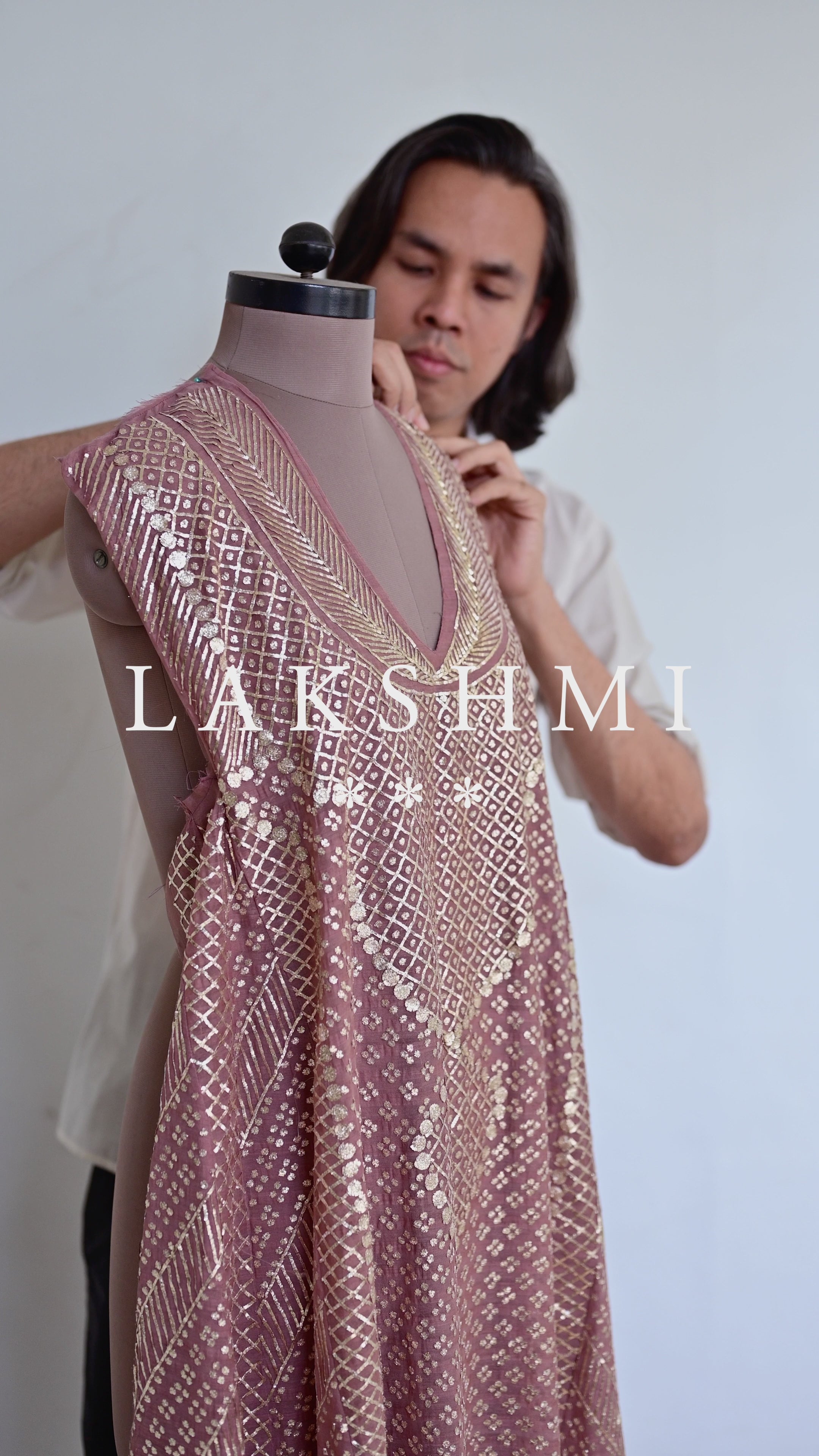
View our Film on the Hasan Abho
Painted Forest
Wallpaper Collection in Collaboration with Nilaya, Asian Paints
The Painted Forest collection of wallpapers draws from a lush, tropical landscape of plants such as palms and plantains, and trees such as the frangipani, kachnar and jackfruit. Arranged as a panorama, the main artwork features a garden in almost full scale, and spans over 90 feet as a non repeating design. The artwork is entirely hand drawn and coloured using mixed media such as water colours, gouache and pencil.
Artist Jisha Unnikrishnan’s inspiration for the collection came from the garden at Amethyst, Chennai. Part real and part fantasy, and drawn in a naturalistic style, birds and animals disappear into the foliage set against a gentle monsoon sky, while a dense growth of shrubs and grasses form the base of the composition. The panorama serves as the inspiration for all the designs in this collection. References are varied and include the magnificent dreamscapes of Henri Rousseau, colours from Indian popular art, wood block printing and French Toile de Jouy textiles.
The collection brings in a connection to the outdoors and in particular, a wild, unmanicured landscape that feels almost utopic, a dream background that extends the everyday realities of living in our homes and offices into the endless beauty of nature.
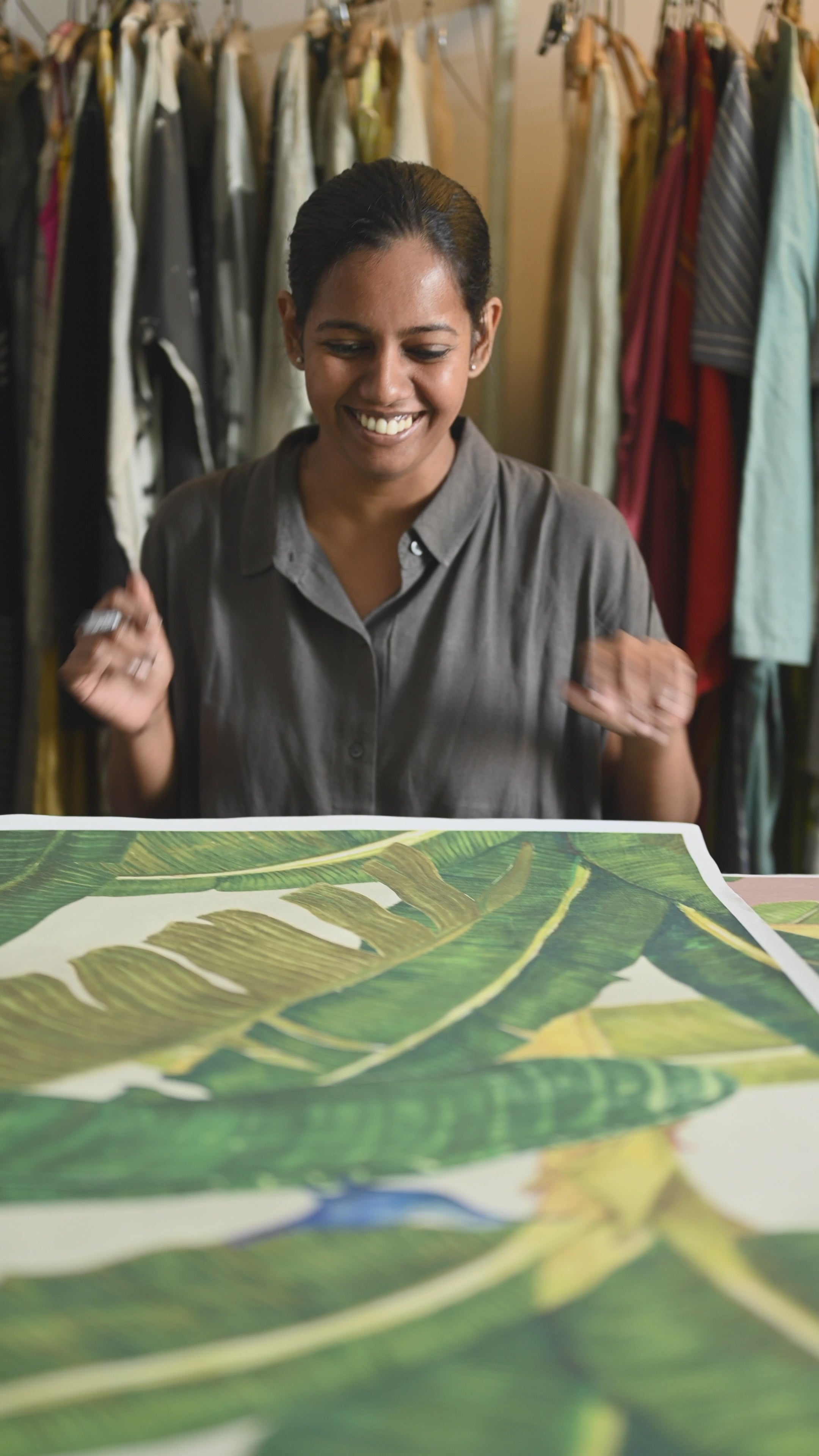
Banana Garden
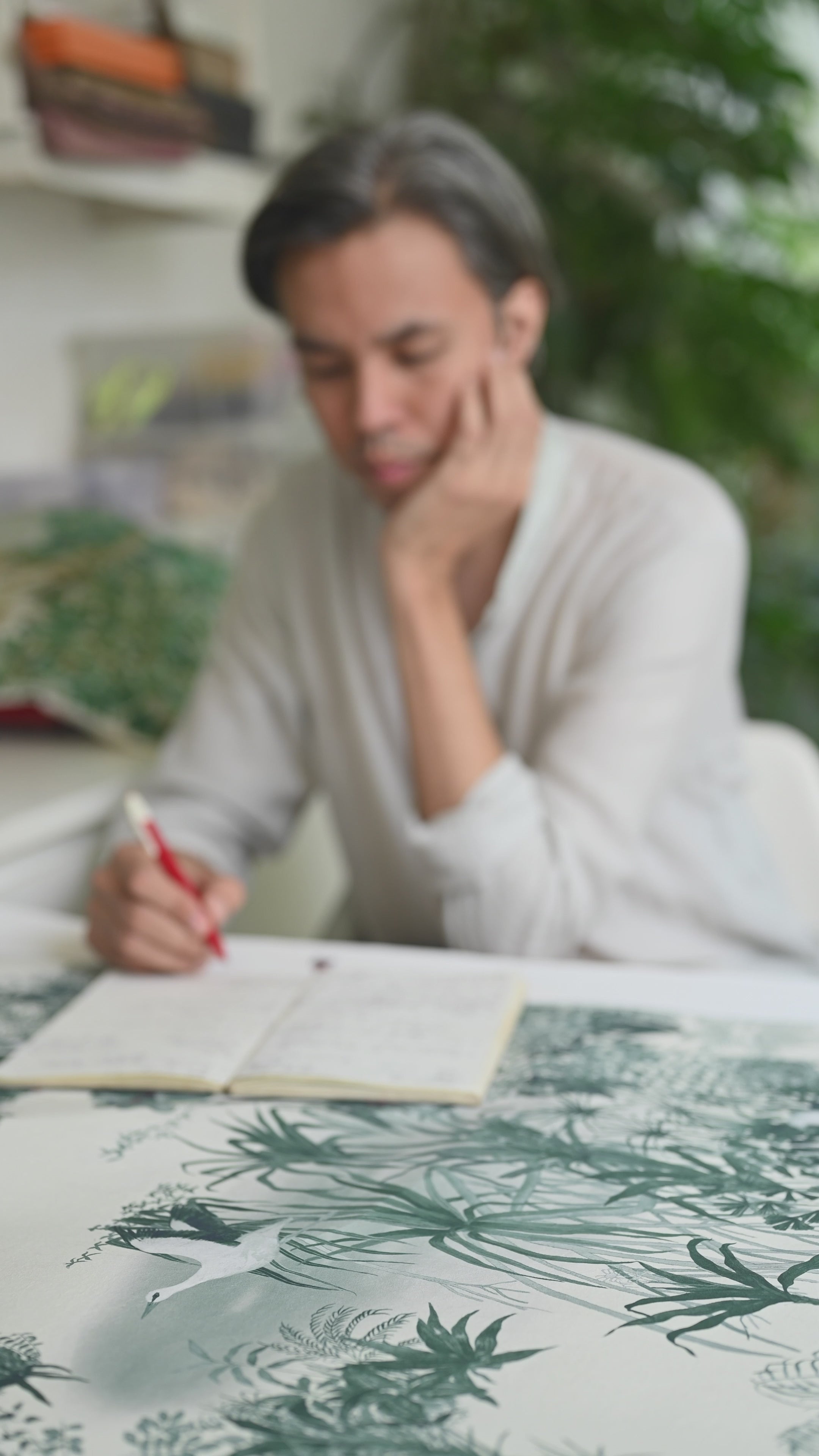
All the Forest

Wild Garden Panorama
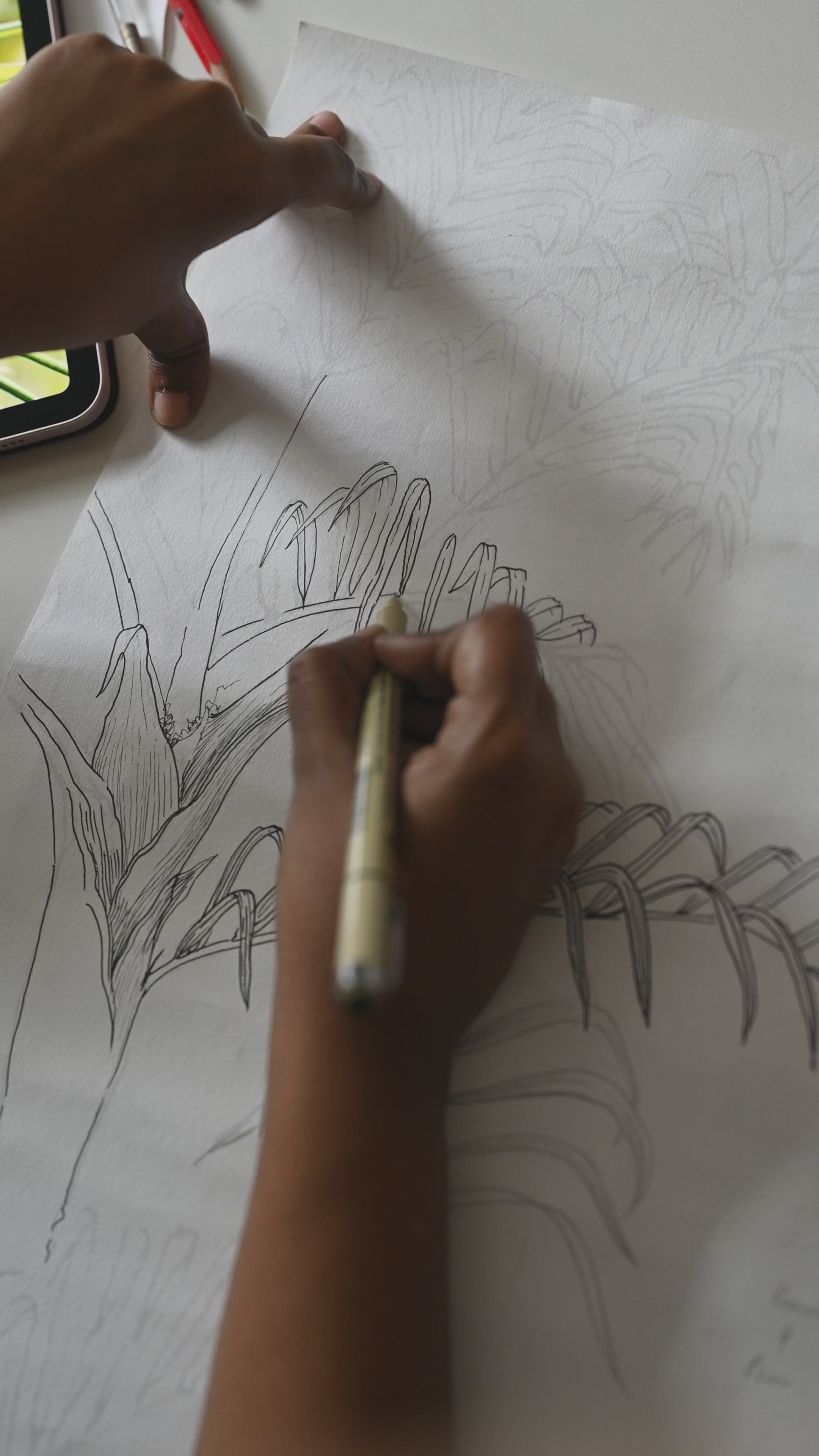
Palm Music
Tangerine
Dinnerware in Collaboration with Good Earth
Tangerine is an homage to the beauty of orange blossoms and fruit, found in abundance and culturally significant to Morocco and the Mediterranean region of Europe. Created in collaboration with Indian luxury brand Good Earth, this is our first foray into tableware design. Watercolour illustrations by Jisha Unnikrishnan which were inspired by the region’s courtyards and decorative arts are translated onto fine china, embellished with 24 carat gold.
The collection features several patterned plates and bowls that can be layered in different combinations in a palette of turquoise and sage, recalling the sunshine and colours of the seaport of Tangier. Coordinating table cloths and napkins featuring embroidered sprigs of Tangerine fruit and blossom complete the offering and add to the layered experience.
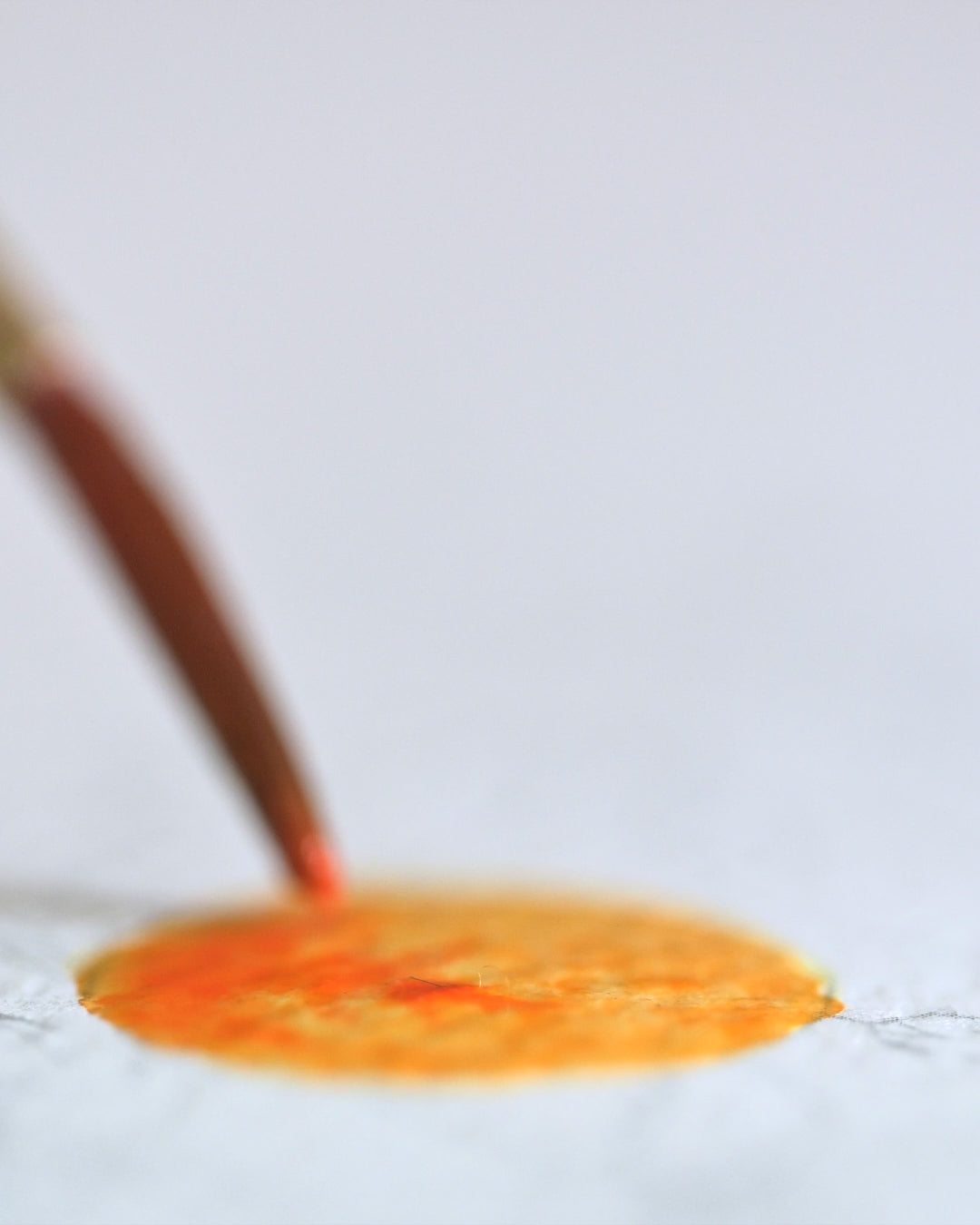
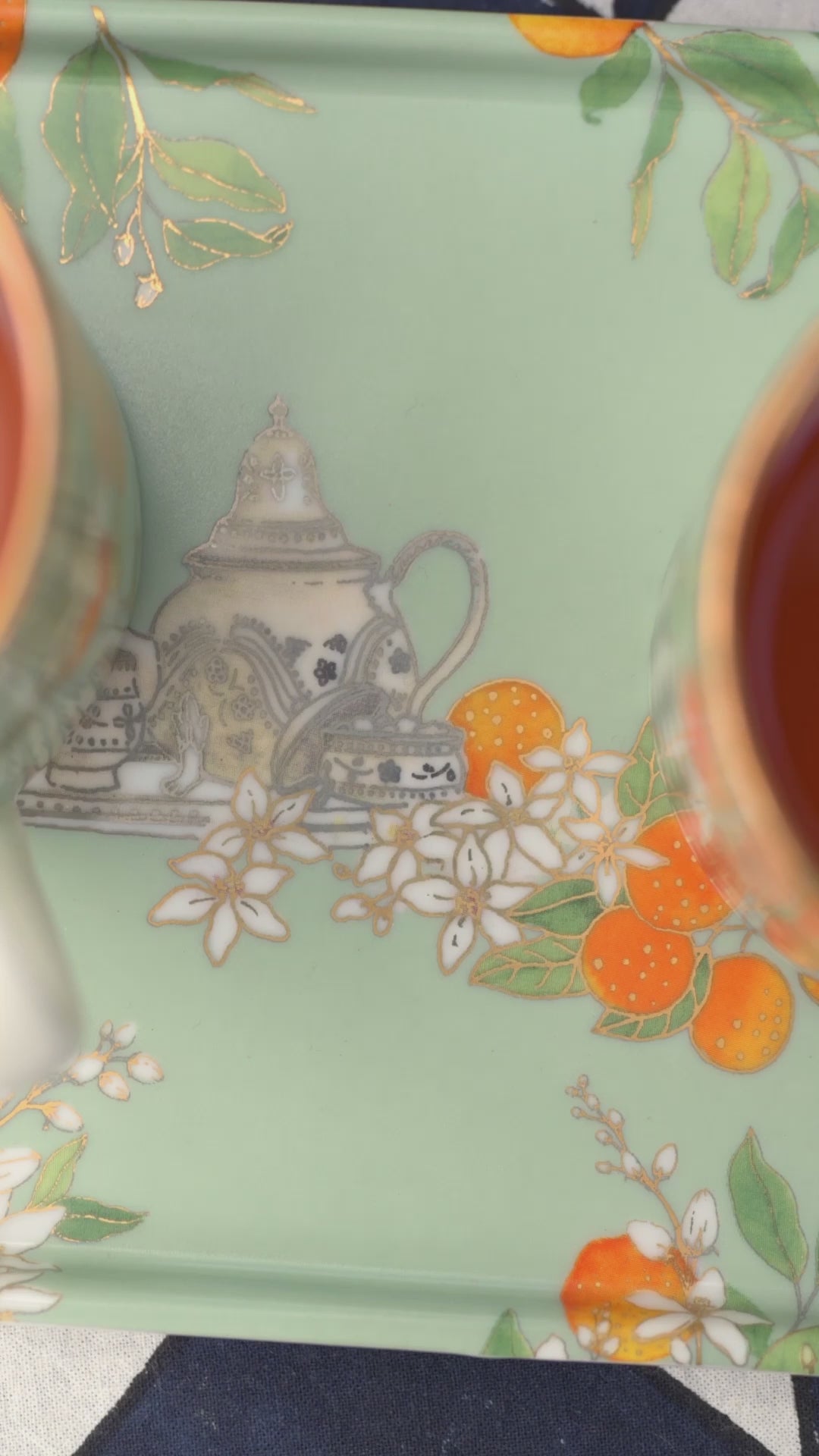
Notes from a Craftsman
Films on Craft
Notes from a Craftsman explores the work and life of five craftspeople - three printers, a dyer and a bead worker - who have been engaged with Tilla for several years. Shot over 2 years in their homes and workshops, it captures their world-views and a nuanced understanding of why it is important to do things by hand. The 25 minute film, which has also been divided into a series of five short duration films, records the changing landscape of the city of Ahmedabad while its crafts adapt to stay relevant.
Sensitive portraits take our attention behind the scenes into a fragile universe of aspirations and challenges that craftspeople face today. Through dialogues with the featured artisans, the film reveals the relationship between their philosophy of life and work. Perhaps the most poignant and important point of the film is a reminder of how we are all connected as makers, designers or patrons of these crafts, through a value system that places pride in craftsmanship and doing things well above all else.
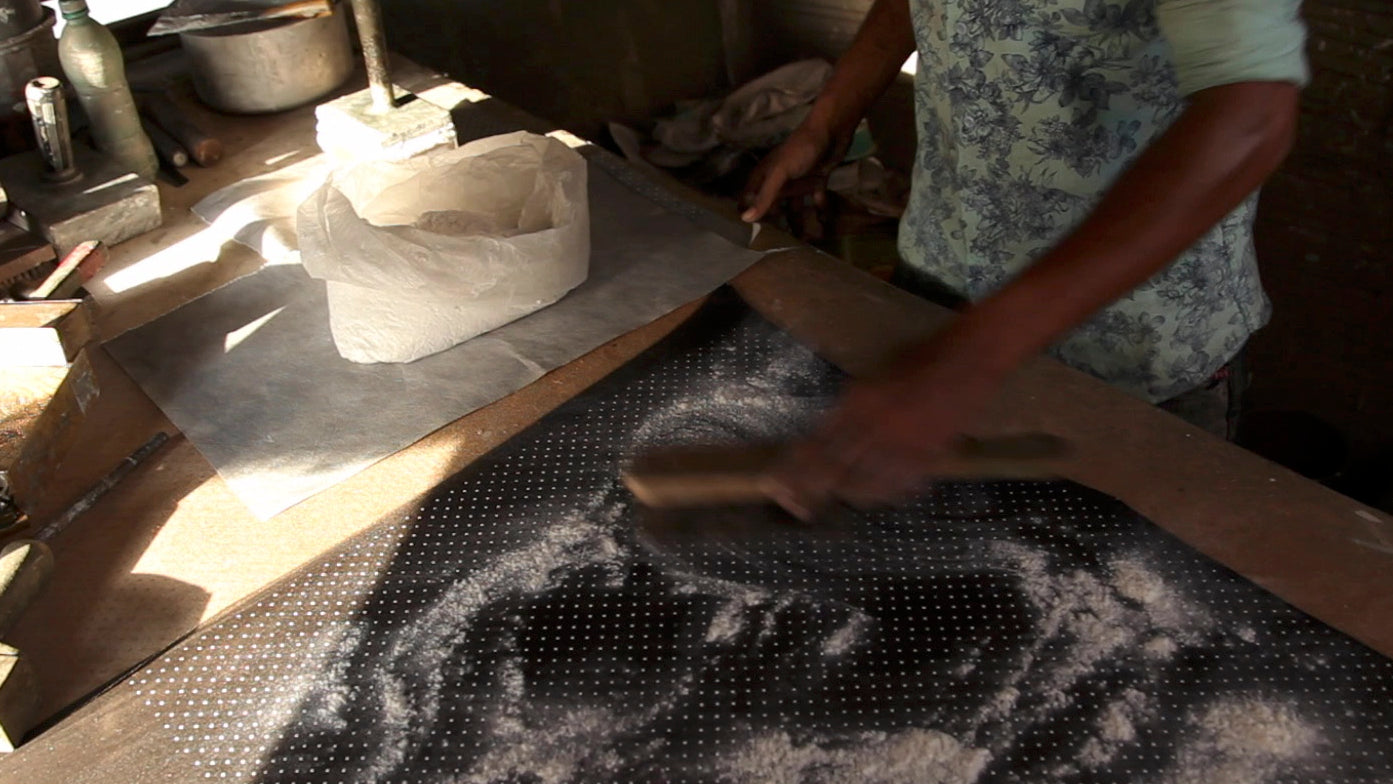
Roghan Block Printing | Anees & Taufiq Rangrez
View Film — 4:43
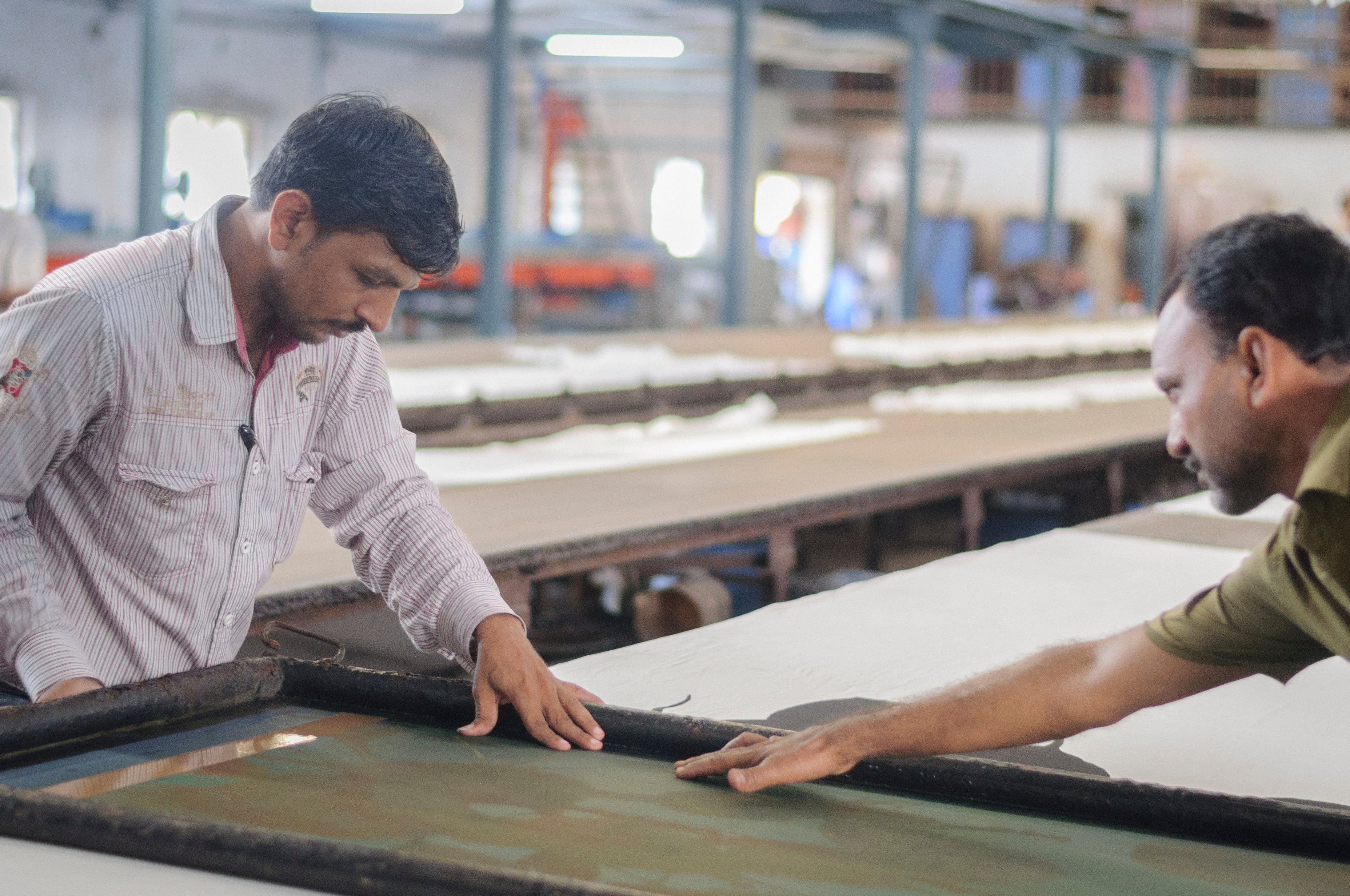
The Supervisor | Vipul Patel
View Film — 4:19
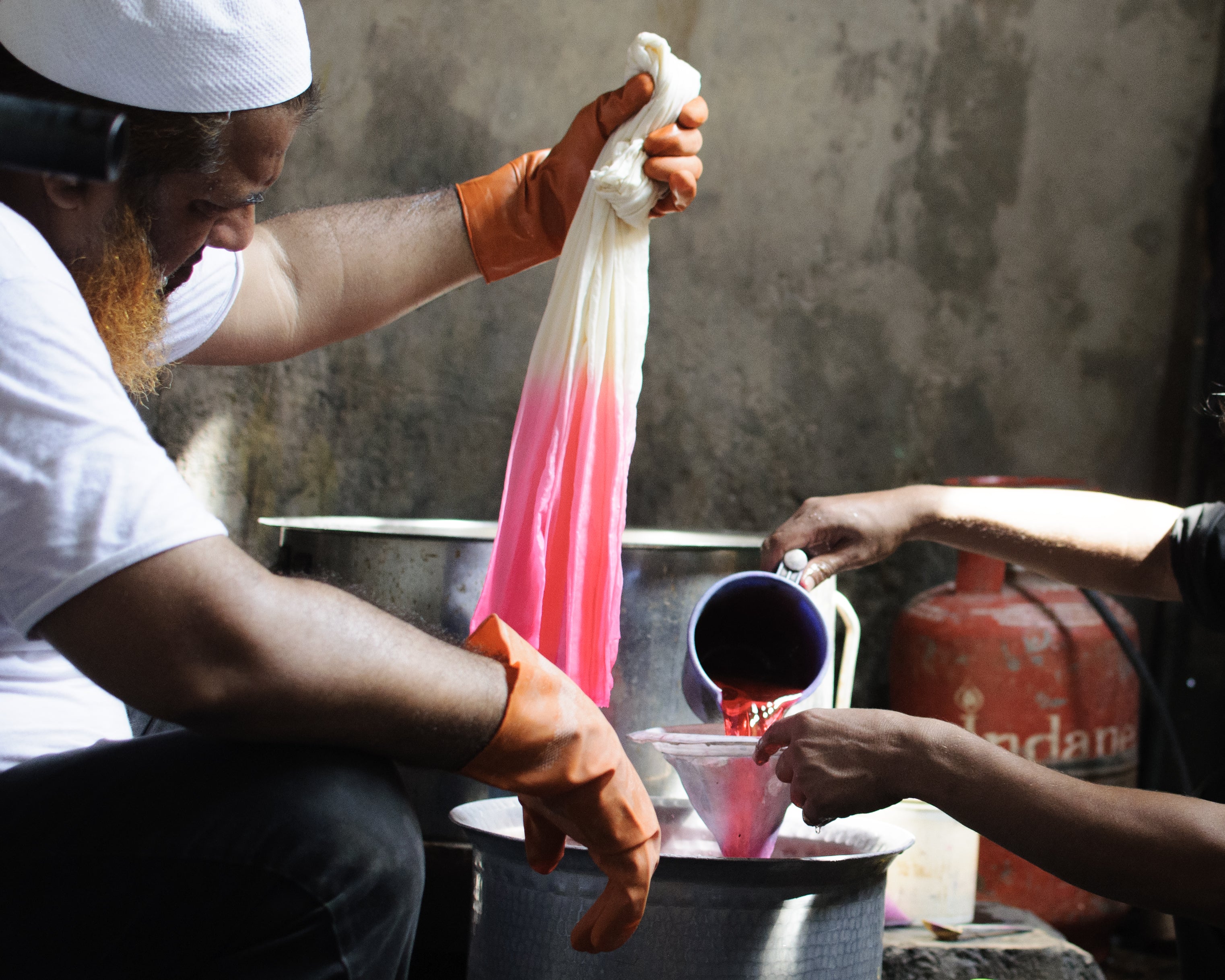
The Dyer | Sabir Rangrez
View Film — 2:57
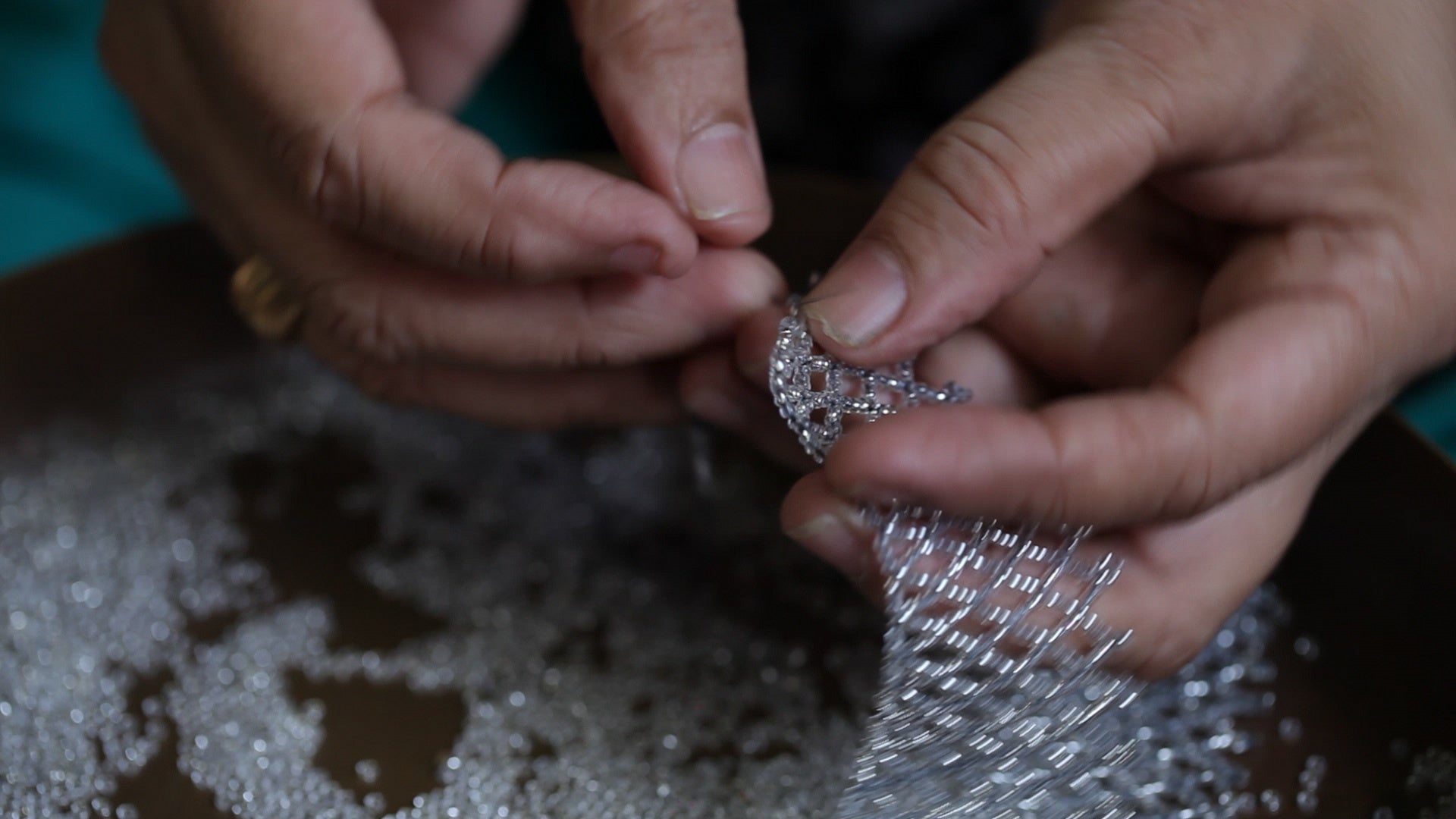
Beadwork | Sitaben Chavda
View Film — 4:57
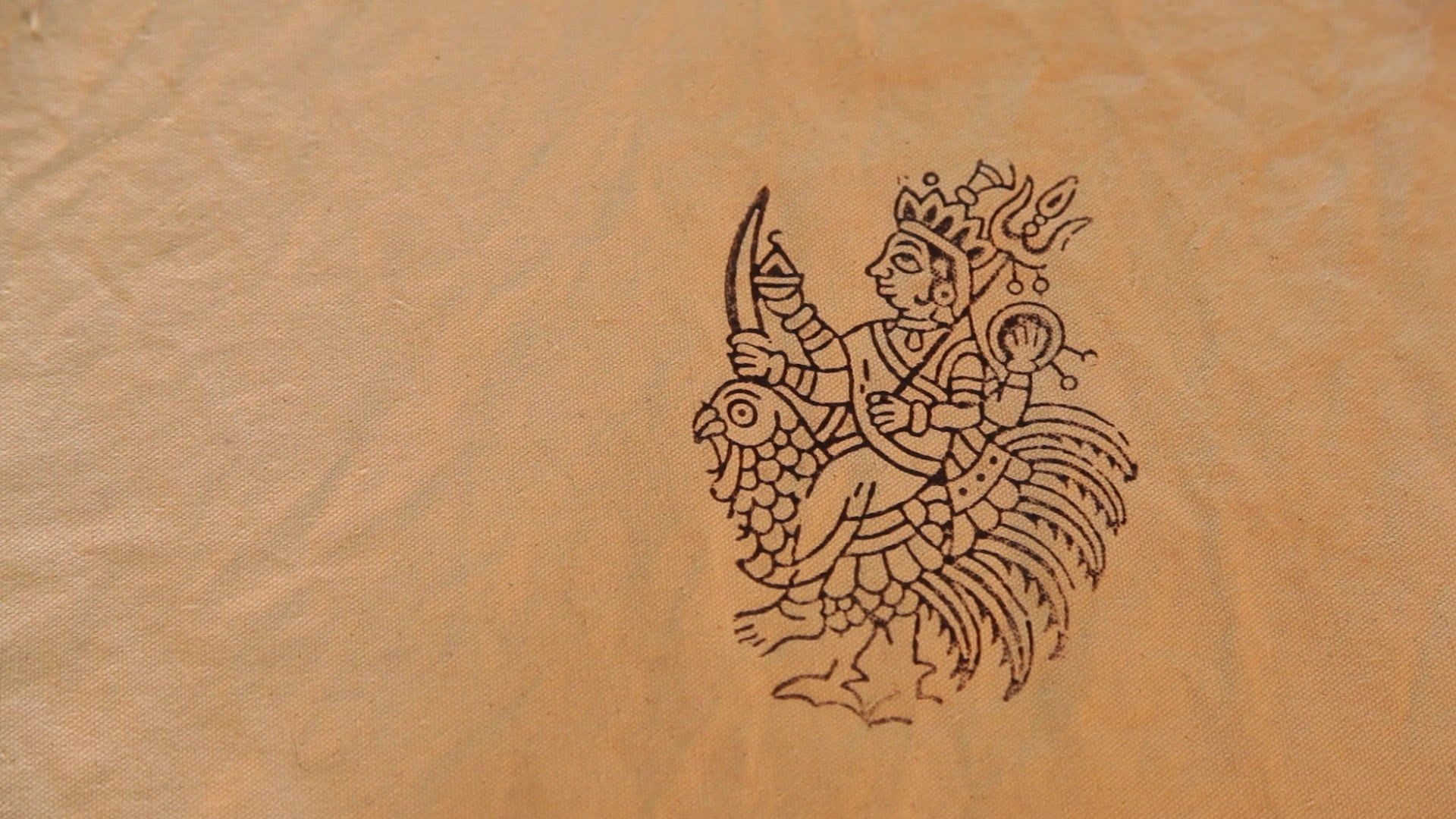
Mata ni Pachedi | Chandrakant Chittara
View Film — 7:40
